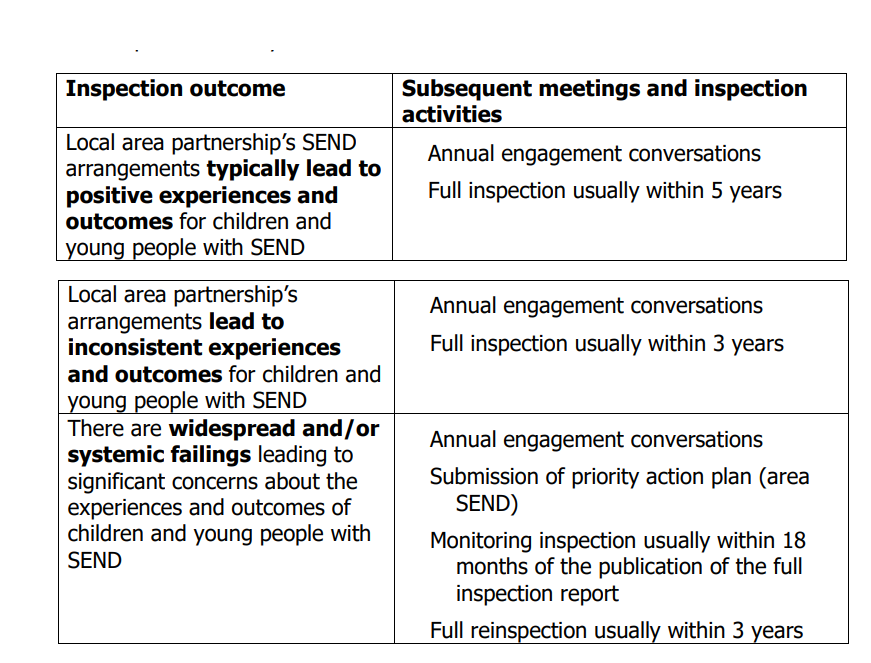Council services for children with special needs would be given Ofsted ratings under new inspection plans to drive “urgent improvement” in the crisis-hit SEND system.
Ofsted and the Care Quality Commission have launched a three-month consultation on the new framework for local area SEND inspections.
A Schools Week investigation last year revealed how vulnerable children and their families were being left to fall into crisis before getting help.
More than half of areas inspected under the current framework had to produce statements of action after inspectors found “significant concerns”.
Other proposals include inspectors speaking to more children and their families, including those in alternative provision.
Amanda Spielman, Ofsted’s chief inspector, said the new framework would “strengthen accountability” and be a “force for improvement in the sector to the greatest extent possible”.
“We want to play our part in promoting urgent improvement in the SEND system, with the help of everyone who has a stake in that system.”
She added the inspections are aligned to the “direction set out” in the government’s SEND review to “help prepare areas for future reforms”.
New inspections would be introduced in “early 2023”. The current framework ended in April.
1. Inspections will now focus on impact
Ofsted and the CQC say the current inspection framework, introduced in 2016, places a “significant focus” on whether areas are meeting their legal responsibilities, introduced by the 2014 reforms.
While statutory responsibilities have an “important role”, it will “not be enough to simply” meet these.
Inspectors would now “focus more” on the impact that SEND arrangements have on “the lives” of children and young people.
To do this, Ofsted has drafted “core criteria” inspectors will look at. This includes whether children’s needs are identified in a “timely and effective way” and whether youngsters “participate in decision-making”.
2. Child’s experience will be ‘starting point’
Ofsted say that while the inspections have taken account of children and their family’s views, they want to provide “more opportunities to engage” and collect evidence from them.
The “reviews and experiences” of children and young people with SEND will be “the starting point of inspections”, the consultation proposes.
Inspectors will have “in-depth” discussions with youngsters their “experiences and outcomes”. They will also use “tracking meetings” where they select a sample of children to follow their experiences.
Surveys that are currently only given to parents and carers will be extended to 11 to 25-year-olds and their practitioners. Inspectors will also carry out sampling visits of local services.
This evidence will then be “triangulated” with evidence gathered through a range of on-site inspection activities.
3. Three new ratings proposed
Currently, the SEND inspection reports don’t have an overall outcome, but they instead highlight findings. Areas have to produce statements of action if inspectors have “significant concerns”.
But inspectors now want three “distinct” inspection outcomes including when another inspection is due (see image)

The worst outcome, where widespread failings have been found, would result in a monitoring inspection within 18 months after the initial visit.
Inspectors also propose inviting each local area partnership to “engagement meetings”.
These would focus on the “continual improvement” of the local SEND system and “help keep a spotlight” on SEND between inspections.
4. ‘Priority action plans’ for worst areas
Inspectors also want to introduce “clear and succinct” recommendations on which weaknesses an area should address to “improve the lives and experiences” of children and their families.
They would indicate which local services should take forward specific recommendations. Where inspectors identify widespread or systemic concerns, areas will have to submit a “priority action plan”. This would then be published by Ofsted and CQC.
Inspectors propose that all local areas should update and publish their strategic plan for SEND following an inspection.
5. Alternative provision to be included
The new SEND framework would “increase scrutiny” on how local authorities use, commission and oversee alternative provision (AP). More than 80 per cent of those attending AP are identified as having SEND.
Ofsted say they are concerned AP “may sometimes be used inappropriately to supplement the SEND system”. For example, as a “temporary placement while children wait for an EHC (education health and care) plan or assessment or a place in a special school”.
Inspectors would include pupils with SEND who attend AP as part of the tracking and sampling exercises.
















Your thoughts